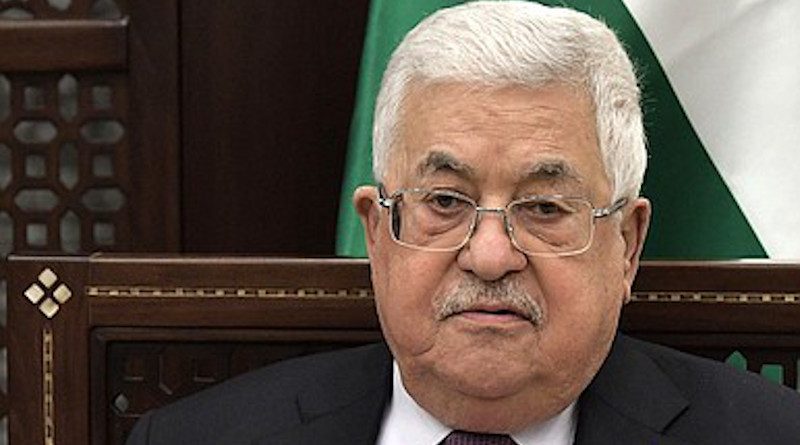Prospect Of Palestinian Civil War Behind Israel’s Desire To Save Abbas – OpEd
By Ramzy Baroud
Palestinian Authority President Mahmoud Abbas has the perfect opportunity to exit the stage. But he will not. Abbas’ brief visit to the devastated Jenin refugee camp last week demonstrated the absurdity and danger of the PA and its 87-year-old leader. As he walked, Abbas struggled to keep his balance, in what was promoted as a “solidarity” visit to the camp.
Thousands of frustrated Jenin residents took to the streets, hardly chanting Abbas’ name. Some looked on with disappointment; others asked where the president’s forces were when Israel invaded the camp, killing 12 and wounding and arresting hundreds more. The BBC reported on a “huge armed deployment” to secure Abbas’ visit, in which “PA security forces joined a thousand-strong unit of Mr. Abbas’ elite presidential guard.” Their only job was to “clear a path” for Abbas into the camp.
On the first, most-deadly day of the Israeli invasion of Jenin, the Israeli media, citing military sources, said that 1,000 Israeli soldiers were taking part in the military operation. Yet it took more Palestinian soldiers to secure Abbas’ brief visit to Jenin.
Indeed, where were those well-dressed and equipped PA soldiers when Jenin was fighting and dying alone? And why does Abbas need to be protected from his own people? To address these questions, it is important to examine recent contexts and three significant dates in particular.
On July 5, Israel ended its military operation in Jenin. On July 9, despite protests by some of his security Cabinet members, Israeli Prime Minister Benjamin Netanyahu declared that Israel would do its utmost to prevent the collapse of the PA. He stated outright that the PA “works for us.” And, finally, on July 12, Abbas visited Jenin with a stern message to Palestinian resistance groups.
These three dates are directly related. The failed raid on Jenin has heightened the significance of the PA in Israel’s eyes and Abbas visited Jenin to reassure Israel that his PA is up for the task.
To live up to Israel’s expectations and to ensure its survival, the PA is willing to clash directly with Palestinians who refuse to toe the line. “There will be one authority and one security force,” Abbas angrily declared, only days after the burials of Jenin’s victims. “Anyone who seeks to undermine its unity and security will face the consequences.” He further promised that: “Any hand that reaches out to harm the people and their stability shall be cut off.” The hand referenced here is not that of Israel, but any Palestinian who resists Israel.
Abbas knows that Palestinians outright despise him and his PA. Just days earlier, Fatah party Deputy Chairman Mahmoud Aloul was chased out of Jenin by angry crowds. The crowds chanted “get out” to Aloul and two other PA officials.
They did so, but Abbas returned to the scene. He was flown in a Jordanian military helicopter. Waiting for him below was a small PA army that had taken over the streets and the high buildings — or whatever remained of them — in the destroyed camp. All of this happened through logistical arrangements with the Israeli military.
But why is Netanyahu so keen on the PA’s survival? Netanyahu wants the PA to survive simply because he does not want the Israeli occupation administration and military to be fully responsible for the welfare of Palestinians in the West Bank and the security of the illegal settlers.
Despite their near complete failure, the Oslo Accords succeeded in doing one thing: They provided Israel with a Palestinian force whose main mission is to assist the Israeli occupation in its quest to maintain total control over the West Bank. Abbas’ trip to Jenin was intended to reassure Tel Aviv that the PA is still committed to its obligations to Israel.
Another message was sent to US President Joe Biden, who last week said that “the PA has lost its credibility,” which has “created a vacuum for extremism.” The message to Washington was that the hands of the so-called extremists will be “cut off” and that there will be “consequences” for those who defy the PA’s will. Abbas seemed to speak not only on behalf of the PA, but also on behalf of Tel Aviv and Washington as well.
Even ordinary Palestinians understand this to be the case; in fact, they always have. The only difference now is that they feel emboldened by a new generation of resistance, which has succeeded in reclaiming a degree of Palestinian unity amid factional politics and PA corruption.
The PA is now seen by most Palestinians as an obstacle in the face of full unity. That position is fully fathomable. While Israel was ramping up its deadly operations in Jenin and Nablus, the PA police was arresting Palestinian activists, angering resistance groups in the West Bank and Gaza.
If this continues, a civil war in the West Bank is a real possibility, especially as Abbas’ likely successors are equally distrusted, even by Fatah’s own rank and file. These men were also in Jenin, standing shoulder to shoulder behind Abbas as he was frantically trying to lay out the new rules.
This time around, Palestinians are unlikely to listen. For the resistance, the stakes are too high to back down now. For the PA, losing the West Bank would mean losing billions of dollars of financial handouts from the West.
A clash between the resistance and its popular support on the one hand and the West and Israel-backed PA forces on the other would prove very costly for the Palestinians. Yet, for Tel Aviv, it would be a win-win. This is why Netanyahu is anxious to help Abbas keep his job, at least long enough to ensure that the post-Abbas transition takes place efficiently.
Palestinians must find a way to block such designs, preserve Palestinian blood and restructure their leadership so that it represents them, not the interests of the Israeli occupation.

